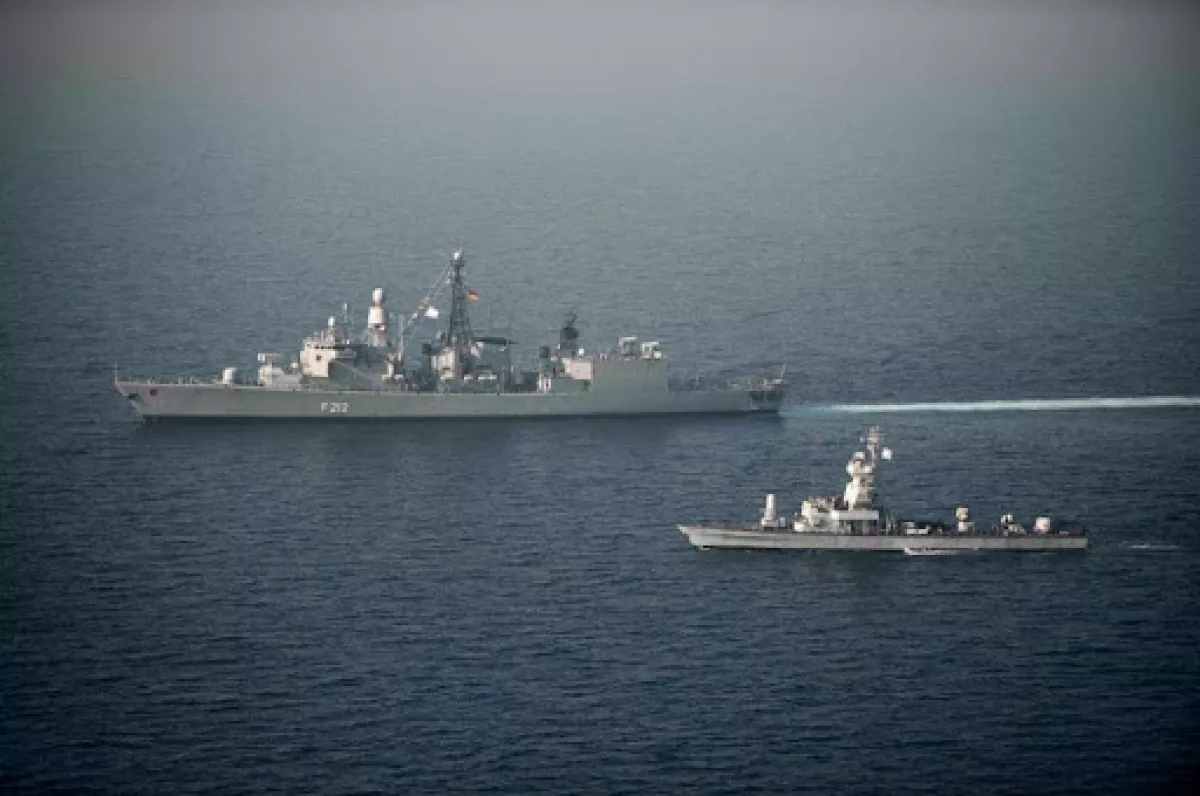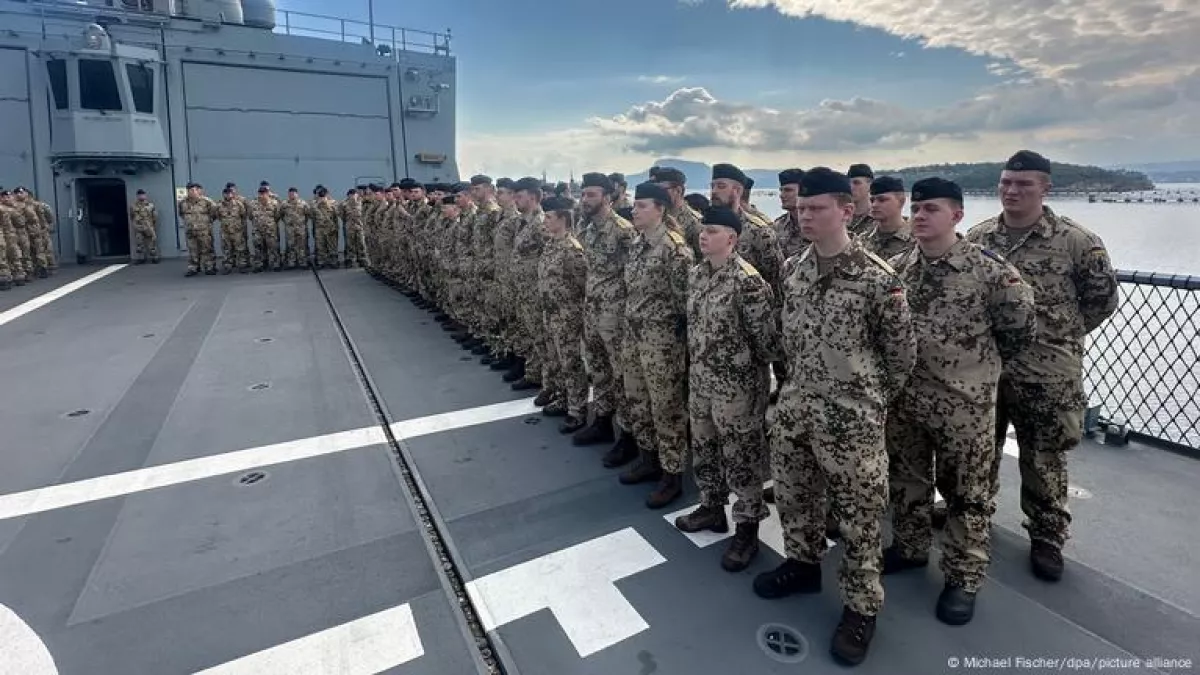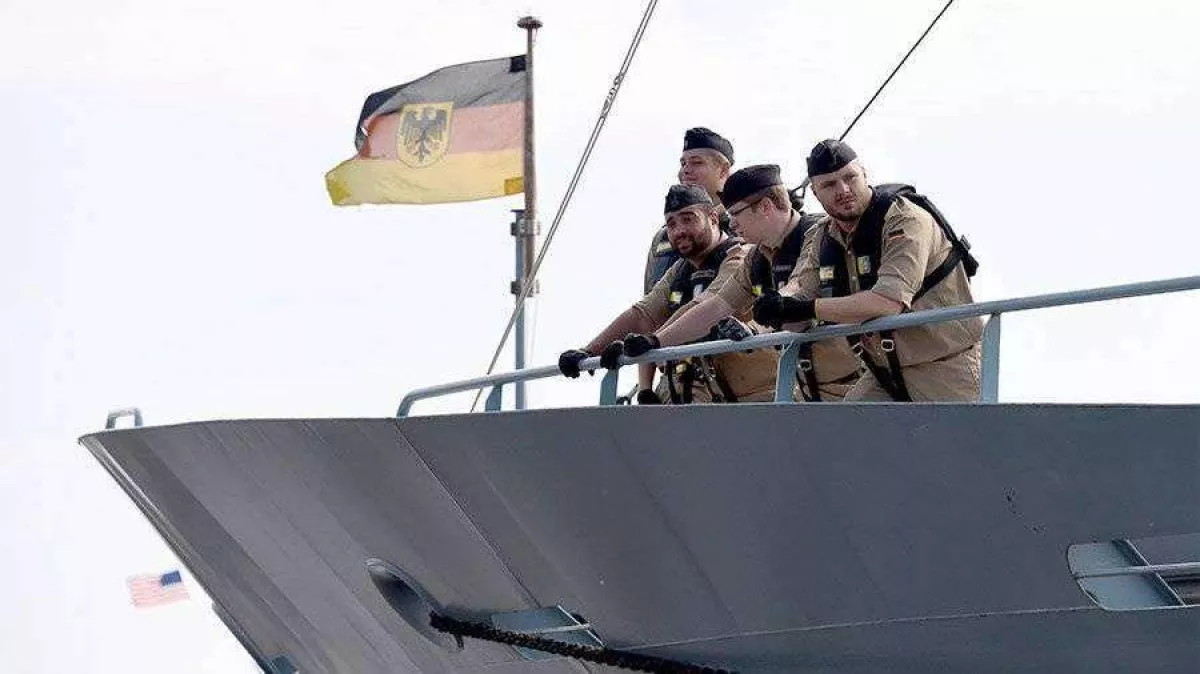Germany rebuilds naval power as global arms race spreads to the oceans The Bundesmarine’s new era
The competition for military supremacy has now expanded to the seas. Countries that previously stayed out of active naval policies are now quickly assembling large fleets of warships to secure vital maritime trade routes and defend against threats from rival powers.
Germany's Navy was dismantled following both World War I and World War II, but today we are witnessing its revival. Recently, Berlin announced an increase in its military presence in the Mediterranean Sea. Germany intends to play a more proactive role in enforcing the maritime embargo on Lebanon to prevent arms shipments to Hezbollah. On October 17, 2024, German naval vessels shot down an unmanned aerial vehicle in the vicinity of the city of Nukhra. Alongside the 150 soldiers involved in patrolling Lebanon’s shores, additional German forces were redeployed to Cyprus and Jordan. These actions have been highly praised by Israeli leadership, which considers Germany's growing presence to be part of the diplomatic and military support that the Federal Republic of Germany has been providing Israel in recent years. Israel hopes that the redeployment of German forces will improve intelligence-gathering capabilities and strengthen air defense systems, especially to counter unmanned aerial vehicles.
Furthermore, Germany is taking steps to bolster the Lebanese military. Currently, German specialists are working on establishing a network of radar stations along the Lebanese coastline. It remains unclear whether these radar stations will be transferred to the Lebanese Army, as such actions require Israel's approval. This surveillance system could also be used to monitor the air and maritime space of Syria after the eventual collapse of Bashar al-Assad's regime.

Another segment of Germany’s fleet has been redirected to focus on the Yemeni Houthi rebels. On February 23, 2024, the Bundestag decided to send 700 German military personnel to the Red Sea for a year. According to a statement from the German Ministry of Defense, the deployment aims to protect vessels from attacks in the Bab-el-Mandeb Strait. The flagship of this force will be the Hessen frigate, which will operate as part of an international coalition led by the United States.
The legal basis for this deployment stems from a European Union decision in late 2023 to create a naval operational group tasked with safeguarding shipping routes in the Middle East. The maritime trade routes between the Suez Canal and the Bab-el-Mandeb Strait, as well as access to the Indo-Pacific region, are crucial to the economic security of both Germany and Europe. However, European nations are cautious about the potential for conflict with Iran, which is why the mandate for the German fleet does not extend into the waters north of Muscat in the Gulf of Oman or the Strait of Hormuz.
In addition to its growing presence in the Middle East, Germany has not forgotten its primary focus — the Baltic Sea. The German Navy is the largest naval force within NATO in this region, which also includes the North and Norwegian Seas. In the event of a conflict with Russia, the German fleet will be responsible for securing key maritime routes and engaging in counter-mining operations. This issue is particularly pressing, given the historical context of the world wars in the Baltic and the consistent incidents of damage to pipelines and maritime communications over the last three years. For example, in October 2023, an underwater cable and gas pipeline in the Baltic Sea were damaged. A similar incident occurred in November 2024, when damage was identified by Danish vessels, with support from the German fleet.
In June 2024, the German Navy participated in the large-scale NATO exercises "Baltic Operation 2024." The headquarters of the exercises were located in the German city of Kiel. In addition to Germany, 20 other countries took part. The exercises lasted for 21 days and involved more than 50 ships, 85 aircraft, and approximately 9,000 military personnel. The drills focused on air defense, submarine warfare, artillery training, and tactical maneuvering. Commenting on the events, Russian Foreign Minister Sergei Lavrov noted that the exercises would have "serious negative consequences" and promised to respond with "mirror countermeasures."
To strengthen its forces in the Baltic, Germany allocated funds for the construction of four modern submarines of the 212CD class. In total, Germany's submarine fleet is expected to grow to 15 submarines capable of addressing a wide range of tasks. Today, the Baltic Sea is one of the most volatile regions, considering the situation surrounding Kaliningrad, the Baltic States, the Gulf of Finland, and Gotland Island.

However, Germany's ambitions are much more global. Today, ships under the black-red-yellow flag are arriving in regions where they have not been seen since the early 20th century. For example, in 2024, the Baden-Württemberg frigate, accompanied by the supply ship "Frankfurt am Main", spent seven months in the Indian Ocean. This raised serious concerns in China, as the two German ships passed near the shores of Taiwan, which Beijing considers its territory. Chinese military aircraft and vessels were deployed to accompany them. In response, Germany's Defense Minister Boris Pistorius stated that the ships had not ventured beyond international waters. Soon after, in December 2024, a Chinese national was arrested near the naval base in Kiel with photographic equipment. He was charged with espionage.
After departing from Taiwan’s shores, the German ships set course for Japan. In an interview with The Japan Times, Vice Admiral Jan Christian Kaack, commander of Germany’s naval forces, explained that the increased presence of the German Navy in Asia is driven by the need to safeguard freedom of navigation and protect vital trade routes. He pointed out that maritime communications are essential for both trade and military objectives: "People are slowly realizing that the sea lines of communication — the vital ‘veins’ for seaborne supply, so to speak — do not only span the world, but above all they are everyone’s concern — no shipping, no shopping! Being the smallest German Navy since 1956, however, we cannot do everything. We need to examine, prioritize and make things more flexible in order to fulfill our priority mission of being 'regionally rooted,' which we have been assigned as a result of this turning point in history we are living through."

Following their visit to Japan, the German Navy conducted joint exercises with Japan's Self-Defense Forces, as well as with ships from the US, French, and Italian navies operating in Japanese waters. The German vessels then returned to Europe, stopping in South Korea and India. Notably, on their return trip to Europe, the "Baden-Württemberg" refrained from taking the shorter route through the Red Sea due to concerns over attacks by Yemeni Houthi forces. According to a report from Der Spiegel, the security situation in the Red Sea had worsened to such an extent that German Defense Minister Boris Pistorius ordered the frigate and its accompanying supply ship to avoid the dangerous route and instead choose a much longer path around the Cape of Good Hope.
This incident exemplifies the challenges facing Germany as it works to restore its naval strength. On one hand, Berlin is assuming various security responsibilities in the Mediterranean, North Sea, and Baltic regions. On the other hand, the German fleet lacks the necessary number of ships, bases, and infrastructure to maintain a robust global presence. Partly, Germany is addressing this issue by cooperating with its allies, including NATO members, Israel, Japan, and other partners. However, this involvement is pulling Germany into confrontations with China, Russia, Iran, and other powers opposing the Western bloc. The near future will reveal whether Berlin can successfully manage this intricate game of global maritime politics, or if it surpasses the current capabilities of modern Germany.








